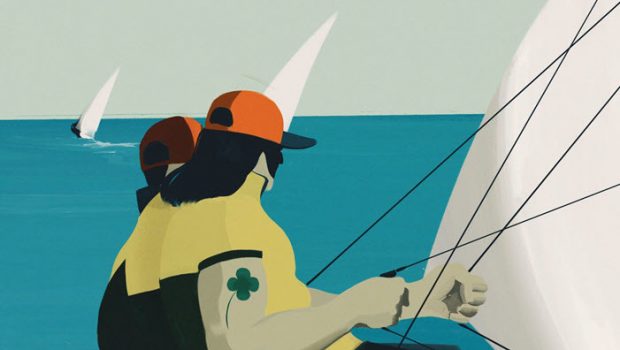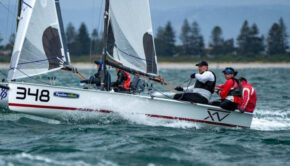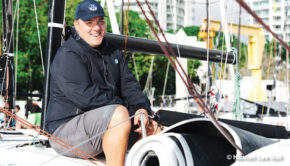What Luck Has to Do with It
Published on April 22nd, 2019
by Jonathan McKee, Sailing World
Things are looking bad for us. Then, it’s almost too good to be true. The breeze is dying as we near the finish of the seventh race of the 2001 49er Worlds on Lake Garda. We are well-positioned in the top five, with some really good teams behind us, but it looks as though the time limit will expire and the race won’t count. Our bad luck.
But the race committee doesn’t abandon the race when it seems they should, and it records everyone’s finishes. The race is later protested, and at the hearing, it’s determined the race will stand because of some obscure appeal. All of a sudden, because of this surprise ruling, we are winning the world championship.
Our bad luck is now good luck, and we had no hand in it.
A similar thing happens a few years later, at the 2005 Melges 24 Worlds. We’re going really well in the breeze, but not so fast in the light. We’ve carefully built a series lead to carry into the last day. We just need to beat the Italians, the light-air specialists. There’s only one problem: The breeze is light and getting lighter. Two races are scheduled. The Italians win the first. We finish 12th. Our lead is now down to two points, with one final light-air race to go. The breeze continues to die until racing is abandoned altogether. Again, a stroke of good luck is instrumental in winning a major championship. Or is it bad luck for the other teams?
Luck is so ingrained in our sport that it impacts nearly every aspect, but luck is not destiny, and it rolls both ways equally over time. It’s possible, however, to get so good that you are superior to other teams, and thus able to win, even if you don’t get a few breaks. This is what all top sailors strive for: to create superiority sufficient enough to overcome small setbacks. This attitude was adopted by Paul Elvstrom and, more recently, by Ben Ainslie in their individual pursuits of Olympic medals. The Olympics is a long and difficult regatta that requires sailors to withstand random bouts of misfortune in order to triumph. However, for most mortals, our luck has a more substantial effect on how we do. – Full report









 We’ll keep your information safe.
We’ll keep your information safe.